Composting is a great technique to cut waste, enhance soil health, and create nutrient-rich compost for gardening. Not all items, however, can be composted.
Food scraps and other organic waste may be recycled through composting, which also helps lower carbon emissions and produce nutrient-rich soil for gardens. If improper components are added, composting can take longer, create unpleasant odors, and attract bugs.
In this article, I’ve compiled a list of eight things you should never compost which will benefit you.
Diseased or Infected Plants
Even though it could seem alluring, composting your sick or infected plants can be a bad idea. When compost is utilized, plant illnesses and diseases may persist during the composting process and spread to other plants. It’s preferable to get rid of these plants in the garbage or, if you can, burn them to prevent this.
Composting diseased plants can also serve as a breeding ground for bugs and other creatures that could spread the illness or result in additional issues in the garden. So instead, it is advised to get rid of contaminated plant material in the trash or, if authorized in your region, burn it.
Related: The Ultimate Guide To Composting
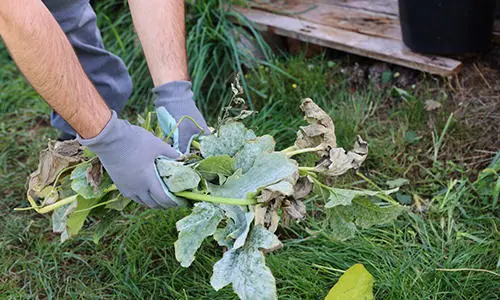
Pet Waste
Never put pet waste in your compost pile, such as cat litter or dog waste. These substances may contain dangerous germs that might endanger human health by resisting composting. Also, adding pet waste to your compost might result in a foul smell that is difficult to eliminate. Instead of burying it in the ground, pet waste should be disposed of in the trash or a unique pet waste location.
Pet waste can include a variety of dangerous pathogens, including E. coli, Salmonella, and fecal coliforms, which can infect people and result in symptoms including diarrhea, nausea, and cramping. In addition, these bacteria may endure the composting process and persist in the compost, where they may subsequently increase and pollute nearby water sources or other horticultural areas.

Inorganic Materials
Since they don’t decompose naturally and can contaminate compost with toxins or heavy metals, inorganic materials shouldn’t be composted because they could endanger human health if they are used to produce food crops or come into touch with people.
As a result, it’s crucial to distinguish between organic and inorganic waste and appropriately dispose of both. While organic waste can be composted to provide a nutrient-rich soil amendment, inorganic trash should be recycled or disposed of in the proper waste streams.
Related: Boost Your Soil Quality With This Compost
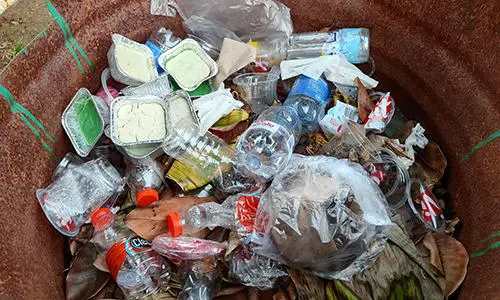
Weeds With Seeds
Weeds bearing seeds shouldn’t be composted to prevent the seeds from sprouting when the compost is utilized. This can cause a fresh weed invasion in your garden, which might be challenging to manage. It’s advisable to throw away weeds with seeds in the garbage.
Composting needs a set of conditions to break down organic waste, including weeds. Weed seeds may survive and remain viable in the compost if the pile does not reach high enough temperatures or stay hot enough for an extended time.
It’s critical to effectively manage weeds and get rid of them before they can set seed if you want to avoid weed issues in garden beds or other locations.
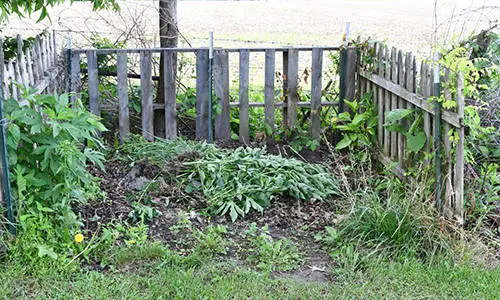
Meat, Fish, and Dairy
Never add meat, fish, or dairy items to your compost pile. These substances may draw rats, flies, and other pests, turning your compost pile into a breeding ground for illness and stench in a short period. These materials also take a while to decompose; when they do, they create disagreeable scents that can persist for months.
Also, the aromas that meat, fish, and dairy products release throughout the decomposition process might be offensive to you and your neighbors. These scents may also draw insects and vermin, making it challenging to maintain your compost pile and necessitating its relocation.
Related: What Happens When You Bury A Fish Head Under A Tomato Plant
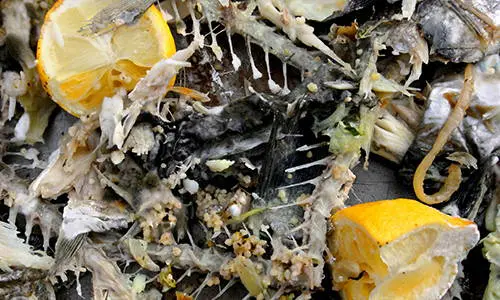
Fats and Oils
Fats and oils should never be composted, just like meat. These things might mess up your compost pile and invite bugs and animals. Moreover, they can impede composting by obstructing air spaces, which delays decomposition. Instead, throw these things out in the garbage or recycle them.
The fact that fats and oils can form a waterproof barrier that keeps water and air from reaching the remainder of the compost pile is another reason they shouldn’t be composted. This may condense the pile and lessen the quantity of oxygen the good bacteria can access. As a result, the pile may start to get acidic, and the composting process may slow down or cease entirely.
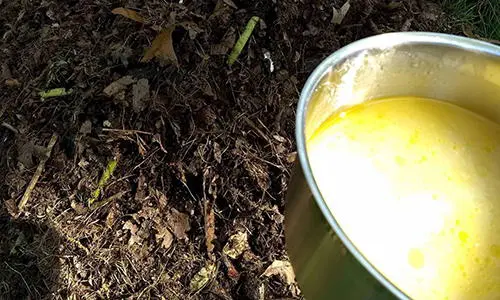
Synthetic Materials
Composting shouldn’t be done with synthetic materials like plastic, rubber, and treated wood. These substances do not decompose throughout the composting process and may release toxic substances into the soil. Also, they might mess up your compost pile and draw bugs and rats. Synthetic materials should be discarded in the garbage or recycled wherever feasible.
Hence, keeping the aforementioned items out of your compost will put you on the correct road whether you are composting for your garden or have an organic collection program to assist in reducing the amount of waste going to your community’s waste.
You may also like:
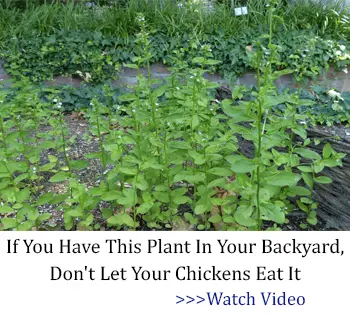 How to Adjust the pH in Soil and Water for Abundant Harvests
How to Adjust the pH in Soil and Water for Abundant Harvests
Cheap and Easy to Build Root Cellar in Your Own Back Yard (Video)

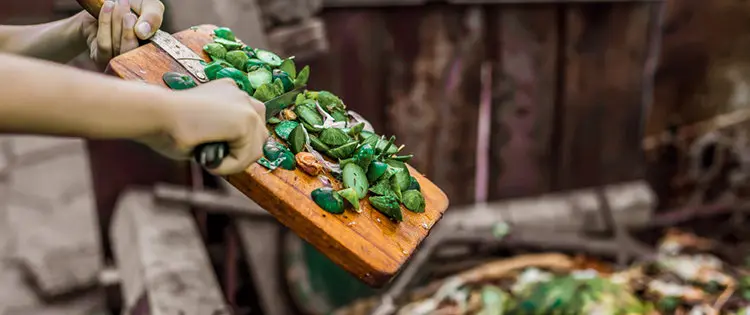









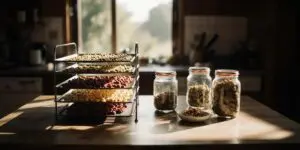

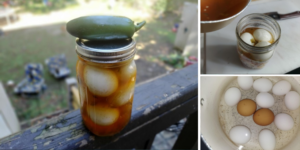
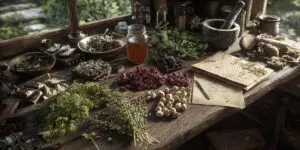
I agree that you should not compost inorganic materials, and that you should burn diseased/infected plants.
But all manures, meats, and fats can indeed be composted. That’s the way the Circle of Stuff works. They may not break down as fast, but a hot pile will definitely take care of those items.
As far as pet/animal manures go, think about all the cats in rural and suburban areas. Do you think that they don’t dig a little hole and relieve themselves in your garden beds? Of course they do! The soil is soft, easy to move around, and cats consider garden beds their personal litter boxes. They don’t think, “Oh, that’s a human’s food bed!”
And yet, all those little brown nuggets and urine break down in the soil.
That’s the way the Creator designed things.
Just maintain a good temperature in your pile, turn it regularly, and keep an eye on it.
P.S. Many, MANY people use dairy for fertilizer. Some of the best hay fields I have seen were fertilized with whey and milk.
Hello MsPony. Thanks for your comment. I wanted to give a thought back regarding all manures being composted. I’m not the author of the post but I do agree with not composting pet manures. You are right, they will of course break down. You are right that kitty might use the garden as a litter box. But if it were my garden, I’d be chasing the local cat digging up in my garden and using it as a litter box. There’s not a chance I would recommend pet owners take their litter boxes or shovel dog poo and throw it into the compost pile with the ultimate destination being their vegetable garden. Around the orchard? No problem. Vegetables to be consumed… no way.
If you’ve ever seen tape worms in dog poo (maybe cat), it’s a lifetime visual reminder of why it’s a poor idea to compost pet manure. I don’t know what temperature a compost pile must attain to properly kill off tapeworms and eggs for example. There are a lot of people who garden. There are a lot of new people just starting out with gardens and composting. I wouldn’t want to make the assumption every compost pile has been properly made, left for the proper time, reached a proper temperature and all pathogens, parasites etc have been safely destroyed.
There’s no way 100% of the compost piles made are safe so I think the advice given to just keep the pet manure out is made out of an abundance of caution since it would be a real drag to ingest tapeworm eggs for example and deal with the aftermath. Just being prudent and not taking an unnecessary chance with the family vegetable plot. But on an orchard or ornamental trees, no problem. We compost human manure and have done it for 43 years. Thanks and stay safe!
Well, I suppose that nothing in life is 100% safe.
If you want safe, then perhaps it is best that you stick to bagged fertilizers and pasteurized, disinfected products.